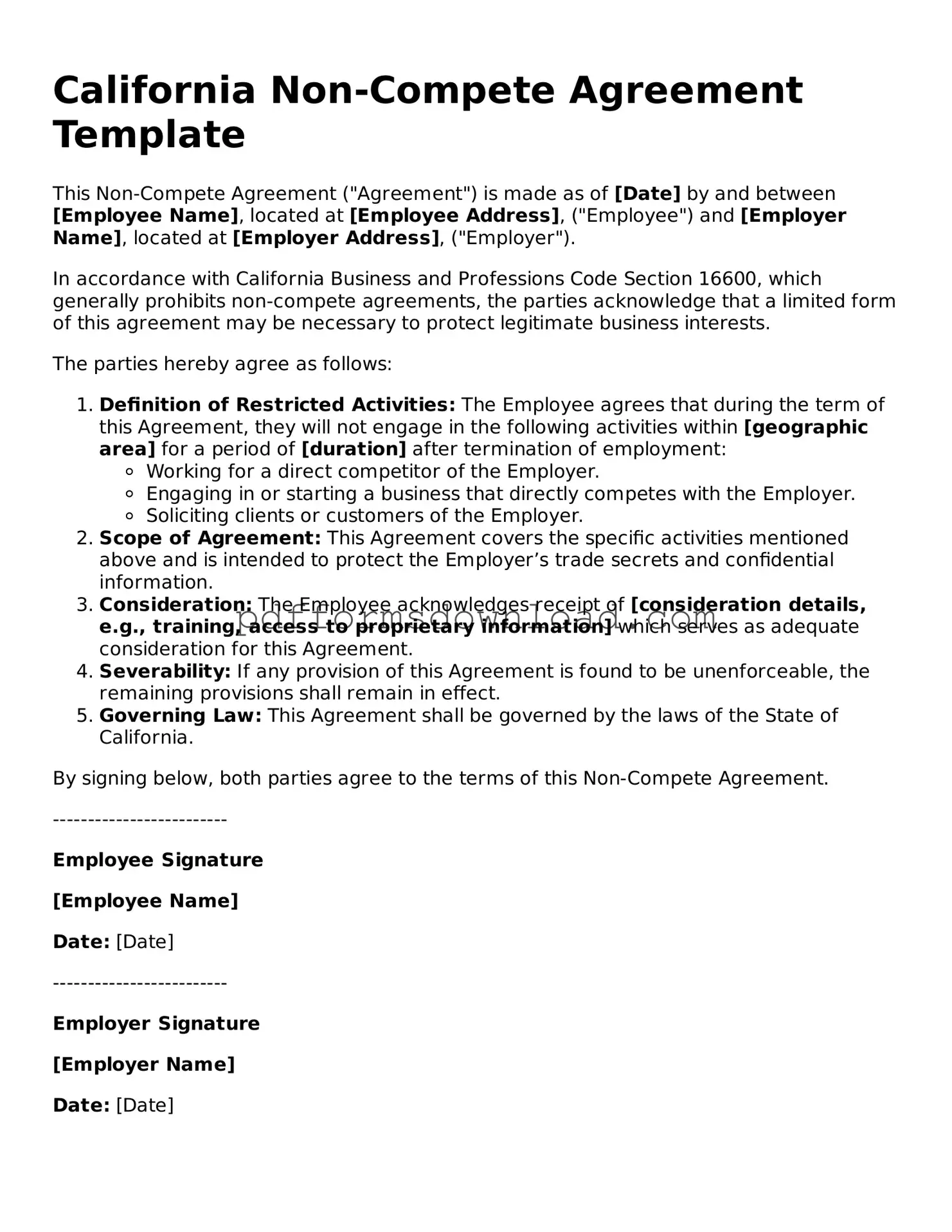What is a California Non-compete Agreement?
A California Non-compete Agreement is a legal contract that restricts an employee from working for a competitor or starting a similar business after leaving their current employer. However, it’s important to note that such agreements are generally unenforceable in California due to state law, which favors employee mobility and open competition.
Are non-compete agreements legal in California?
No, non-compete agreements are largely unenforceable in California. The state’s laws prohibit employers from restricting an employee’s ability to seek work after their employment ends. There are limited exceptions, such as in the case of the sale of a business, where a seller may agree not to compete with the buyer.
What should I do if my employer asks me to sign a non-compete agreement?
If your employer requests that you sign a non-compete agreement, it’s wise to review the document carefully. Consider discussing it with a legal professional who can explain your rights and help you understand the implications. You might also want to negotiate the terms, especially if you feel they are overly restrictive.
Can a non-compete agreement affect my ability to find a job?
While non-compete agreements are generally unenforceable in California, if you sign one, it could create confusion or concern for potential employers. They might hesitate to hire you if they believe you are bound by such an agreement. It's best to clarify your situation with prospective employers and be transparent about the non-compete's enforceability.
What are the consequences of violating a non-compete agreement?
Since non-compete agreements are largely unenforceable in California, violating one may not lead to legal consequences. However, if the agreement is tied to a specific situation that is enforceable, such as the sale of a business, the consequences could include legal action or financial penalties. Always consult with a legal expert if you find yourself in this situation.
Can I work for a competitor if I signed a non-compete agreement?
In California, if you signed a non-compete agreement, you can generally work for a competitor without legal repercussions. The state law supports your right to seek employment and utilize your skills. However, it’s advisable to seek legal guidance to ensure you understand your specific circumstances.
How can I protect myself from a non-compete agreement?
To protect yourself, consider negotiating the terms of any non-compete agreement before signing. If you’re already employed and asked to sign one, seek legal advice to understand your rights. Keeping a record of your employment terms and any agreements can also be beneficial in case disputes arise in the future.

